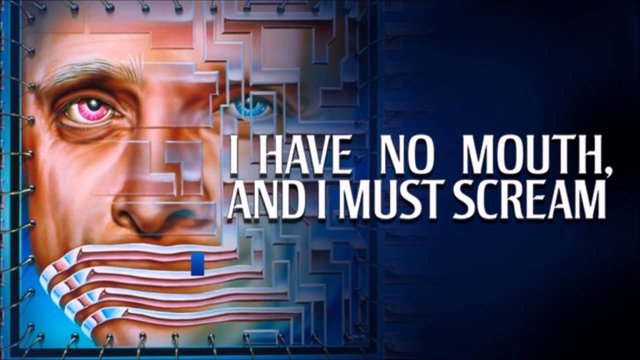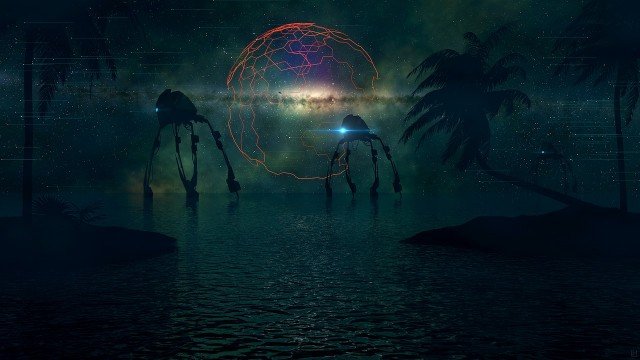Craig Wright, Code Is Not Law, and Why Bitcoin's Future Must Include Humans
I've just finished reading the post "Satoshi Nakamoto" by Dr. Craig Wright, posted to Medium the other today. In it, he speaks of his concerns with the "cypherpunk" and "crypto-anarchist" communities that have driven the cryptocurrency concept for decades. I agree with what I see as Wright's main point: the quest to develop technologies to replace human legal structures will ultimately create a world where humans aren't necessary at all.
Science fiction is full of these scenarios, but most get it wrong. That's mainly because they offer too much hope to the remaining humans -- the reality would be far darker. It's necessary to listen to any technology visionary who defends the human cause at this early stage, and Craig Wright is one of them.
Why should code be Law?
A fundamental belief the cypherpunk and crypto-anarchist groups shared then and today is: "code is law". That the purity of mathematics and computer code can protect us from flaws inherent in human nature and the imperfect societies they've created. That idea doesn't strike me as particularly "anarchist", though for now I'll assume it means humans are free to act as they please within the boundaries of what the code allows. That also describes the internet of the past few decades, though you could easily argue that the virtual world was a lot "freer" in 1990 (before the web) than it is in 2019.Wright says this "freedom" of code-based governance allows people to absolve themselves of responsibility to society. We've seen plenty of examples of this in ten years of cryptocurrency; from numerous scams that combine blockchain anonymity with human naivety to outright theft, ransoms, and more.Many victims of cryptocurrency crime have asked for human authorities to intervene -- and they're usually mocked for doing so. But did they get better treatment from the code? Anarchy is "simply the path to destruction" and "totalitarian control", Wright says. We're seeing several flaws in the existing monetary system rise again in Bitcoin and other cryptocurrencies. ICOs are one major example.My opinion is similar: by placing too much trust in code, and not enough in human law, we will ruin humanity.
I recently worked on a project that involved reading Tim May's "Crypto Anarchist Manifesto" to a camera. Once upon a (younger) time, this was one of my favorite pieces of technology writing. Yet somehow, reading it aloud and watching it back created an epiphany -- that it sounds too optimistic and utopian. The revolutionary note it concludes on ("Arise, you have nothing to lose but your barbed wire fences!") is not a conclusion at all; it's just the euphoric feeling of all revolutionaries the morning after their initial victory, long before their revolution degenerates and corrupts into a system similar to the one it tried to replace.And oh boy, would a revolutionary code-is-law dystopia be an undesirable place to live. I'll explain why.People have already shown a frightening willingness to hand their lives (and control over them) to machines. No doubt algorithms are poring over our Facebook profiles and Google/Amazon histories to build digital dossiers that will ultimately be used against us. And that's just today's algos, created by humans. Just wait till the machines start writing their own.(I don't have Wright's knowledge of classical or historic writing, so I'll turn to ever-trusty pop culture instead.)
Are we building The Matrix for ourselves?
The Matrix, which turned 20 last week, somewhat accurately describes the role for humans in a code-is-law world: as meaningless components performing a simple physical function, as long as what's left of their minds are kept occupied by fantasy. People make the mistake of taking that story literally, arguing that the machines' model for harvesting energy from humans is inefficient and probably impossible. But in a way, that exposes an even darker point -- that there is no role for humans in a code-is-law world at all. The humans-as-batteries premise is only there to make humans part of the story.The Terminator movie premises are even sillier, suggesting humans would stand a chance against an AI that (for some reason) fights them with guns and military machines, rather than just releasing global Ebola and finishing the job in a week. But it wouldn't be much of a story if that happened, so audiences are comforted with a patronizing notion that they're still around, and have a role to play.(In its defense, The Matrix at least toyed with the idea that machines keep humans around as a curiosity in its sequels... before going back to car chases, kung-fu fights and machine gun battles. It too strokes our egos with the ideas that humans can fight back and perhaps even achieve a detente with the machines... though whether that succeeds in the end is left unclear.)A far more realistic "Code is law" far-future is Harlan Ellison's "I Have No Mouth, and I Must Scream", a story so bleak it could never be made into a big-budget, mainstream movie. It's a warning, despite leaving out most of the torment humans would suffer before reaching its worst-unhappy-ending-ever conclusion.
Tech leaders who question the purpose of tech
I don't know what Craig Wright's opinions on Jaron Lanier are (if there are any statements, please point me to them) and I'm not even sure what my opinions on Lanier are, as I've not read enough of his work in detail. But parts of Wright's article echoed criticisms Lanier has leveled at technology and the unquestioning nature of those who promote it.Lanier has railed against everything from social media to collaborative "wisdom" models like Wikipedia and open-source software. Technology, he says, could even be destroying economies and education, funneling wealth and power into a shrinking group of companies and individuals who have little regard for humans or society.Bitcoin, at least, could re-empower individuals rather than disenfranchising them. At least, that's the aim.I'm not sure if Wright was imagining anything as sci-fi as the Matrix, Skynet or AM in his warning; that's just my tangent. More likely he's talking about the loss of humanity among humans themselves in a world governed by code alone. But it's something we need to consider. Many think of technological advancement as a natural, unstoppable force that we're powerless to control. It doesn't have to be that way -- as long as we pay attention to technologists who consider humans, and understand their history. If we don't, our technology will replace us.Crypto-anarchists don't necessarily want disorder, they simply want the right to choose who governs them. And they don't seem to trust humans to do that, instead handing the power monopoly over to code. Like Wright, I believe this is a step in the wrong direction.If we're building a new economy and new form of value transfer with Bitcoin, it needs to follow human rules as well as code. And it needs to be built (and used) by people who also understand that.Agree or disagree? Feel free to let me know. Follow me on Twitter: @BitcoinSVtrain





Congratulations @alkonj13! You have completed the following achievement on the Steem blockchain and have been rewarded with new badge(s) :
You can view your badges on your Steem Board and compare to others on the Steem Ranking
If you no longer want to receive notifications, reply to this comment with the word
STOPVote for @Steemitboard as a witness to get one more award and increased upvotes!